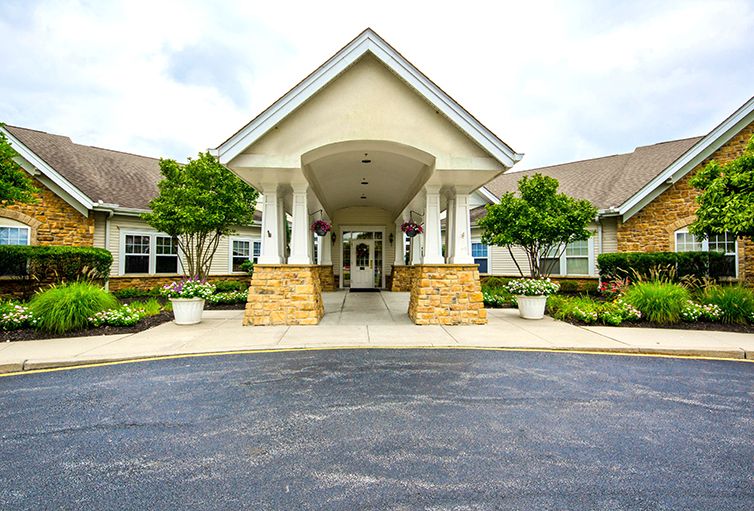Cost-Effective and Intimate Living in Small Memory Carehomes Charlotte
Cost-Effective and Intimate Living in Small Memory Carehomes Charlotte
Blog Article
Discovering the Significance of Memory Care Provider in Small Memory Treatment Homes
Memory treatment services play a vital role in boosting the lives of people with cognitive disabilities. In small memory care homes, the emphasis moves to personalized treatment tailored to every resident's special needs. These intimate setups foster much deeper links and an encouraging neighborhood. The inquiry remains: exactly how do these atmospheres especially add to the psychological well-being of both citizens and their family members? Comprehending this vibrant discloses the true worth of specialized memory treatment.
Comprehending Memory Treatment and Its Importance
Memory care is an important part in dealing with the special needs of individuals with cognitive problems, such as mental deterioration and Alzheimer's disease. This specific kind of treatment concentrates on creating a encouraging and safe atmosphere customized to the challenges dealt with by these people. Memory treatment facilities employ skilled team that understand the complexities of cognitive decrease, supplying personalized care that promotes self-respect and regimens and respect.activities are designed to stimulate memory retention and cognitive function while guaranteeing safety and security and security. Additionally, memory treatment stresses social communication, which can reduce feelings of isolation and enhance emotional well-being. By fostering a structured setting, people can browse their day-to-days live with even more self-confidence. Comprehending the value of memory care reveals its role in improving lifestyle, enabling people to keep as much independence as possible while obtaining the assistance they require.

The Advantages of Smaller Sized Memory Treatment Homes
Smaller sized memory care homes offer a more intimate setting that can noticeably boost the high quality of look after locals. With fewer residents, personnel can develop stronger relationships, fostering trust and emotional links. This customized interest usually leads to improved interaction, making it less complicated for caretakers to comprehend and meet the unique demands of each homeowner. Additionally, smaller environments generally reduce stressors and interruptions, advertising a relaxing environment conducive to memory retention and psychological wellness. The layout of smaller sized homes typically encourages socializing among locals, allowing for meaningful communications that can fight feelings of seclusion. Additionally, these homes can adapt more promptly to modifications in care requirements, guaranteeing that locals receive timely support. Generally, the individualized focus, minimized stress and anxiety, and enhanced social chances found in smaller sized memory treatment homes produce a caring atmosphere that supports both cognitive feature and psychological health and wellness
Personalized Treatment Program for Individual Requirements
Personalized care plans are important in attending to the unique requirements of people in memory treatment. These strategies frequently include customized assistance strategies that enhance daily living and advertise health. Additionally, personalized task involvement aids residents get in touch with their interests, fostering a sense of function and happiness.
Customized Support Techniques
When creating customized support techniques in memory treatment solutions, recognizing the one-of-a-kind demands of each individual is essential. These techniques include producing individualized care plans that cater to the particular requirements, preferences, and abilities of residents. By evaluating cognitive function, emotional well-being, and physical health, caretakers can make reliable treatments that promote comfort and independence - small memory carehomes Charlotte. This customized strategy warranties that each homeowner obtains proper assistance, boosting their top quality of life. Routine examinations and adjustments to these strategies are crucial, as they permit caregivers to react proactively to altering needs. In addition, engaging family participants in the planning process promotes a collaborative setting, enhancing the support network for people with memory challenges. Inevitably, tailored support strategies are critical for supplying efficient and compassionate memory treatment
Individualized Activity Involvement
Producing meaningful involvement via personalized activities is crucial in memory care services. Memory treatment homes prioritize customized care plans that cater to the special requirements and choices of each local. These strategies commonly include tasks tailored to locals' rate of interests, capabilities, and cognitive degrees, boosting their sense of function and dignity. By incorporating familiar regimens, pastimes, and social communications, caregivers can boost cognitive function and emotional health. Individualized activity interaction not just fosters a helpful setting but also motivates homeowners to keep their independence. The energetic participation in these tailored activities can bring about enhanced state of mind and lowered anxiousness, reinforcing the significance of an alternative method in memory care that identifies each individual's journey and one-of-a-kind experiences.
Developing a Helpful Area Environment
While fostering a supportive community environment is important for those with memory care requirements, it needs deliberate design and thoughtful interaction. Producing such a setting entails a mix of physical room and social links. Little memory care homes can benefit considerably from designs that motivate social interaction, such as open typical areas and comfortable gathering spaces. These designs promote a feeling of belonging and security for residents.Moreover, employee play an important role in growing this setting. Training caregivers to prioritize empathy and energetic listening fosters and improves partnerships trust. Additionally, involving families in care strategies and area tasks can enhance bonds and create a network of support.
Enhancing Social Involvement and Tasks
Reliable social interaction and activities are necessary for improving the wellness of residents in memory treatment homes. These communications not only cultivate a feeling of belonging however likewise stimulate cognitive features, which can favorably impact memory retention. Small memory treatment homes typically provide tailored programs customized to the distinct passions visit homepage and capabilities of each resident, permitting more purposeful and efficient engagement.Activities such as art treatment, music sessions, and team games urge residents to attach with each other, promoting friendships and reducing sensations of isolation. Furthermore, incorporating exterior tasks, such as gardening or nature strolls, can improve mood and overall health.These enriching experiences help residents preserve a feeling of purpose and happiness in their lives. By developing an atmosphere that focuses on social communication, small memory treatment homes substantially add to the psychological and emotional wellness of their citizens, guaranteeing they really feel valued and supported in their journey.
Supporting Households With the Trip
As households browse the challenges of caring for a liked one with memory disability, the assistance offered by small memory care homes becomes crucial. small memory carehomes Charlotte. These homes offer not only specific look after locals but also valuable resources for families. By fostering a collaborative environment, small memory care homes urge open interaction, permitting family members to share problems and share experiences.Support groups and instructional workshops are often available, equipping families with expertise and approaches to handle the complexities of memory loss. Such campaigns aid lower sensations of isolation, as families attach with others encountering comparable situations.Moreover, small memory treatment homes often give personalized updates on homeowners' wellness, relieving families' worries and aiding them really feel associated with their loved one's every day life. This all natural technique to support not just improves the quality of treatment for locals but likewise empowers families throughout their psychological journey
The Influence of Specialized Personnel Training on Treatment High Quality
In small memory treatment homes, the high quality of care is greatly influenced by the training and expertise of the team. Specialized training furnishes caregivers with crucial skills to understand and resolve the special requirements of locals with memory problems. Understanding of dementia-related behaviors, efficient communication methods, and person-centered care approaches boosts the capacity of staff to develop an encouraging environment.Moreover, qualified staff are much better prepared to take care of difficult situations, minimizing the likelihood of disputes and ensuring a calmer ambience. This training fosters a deeper psychological connection in between caregivers and locals, promoting trust fund and improving general health. Additionally, specialized training can cause higher task satisfaction among caretakers, reducing turnover rates and supplying connection of look after homeowners. Ultimately, the investment in staff education noticeably boosts the criterion of treatment, which is crucial for boosting the quality of life for individuals in little memory care homes.

Frequently Asked Concerns
Just how Do I Choose the Right Memory Care Home for My Liked One?
Picking the best memory care home entails evaluating personal requirements, checking out centers, assessing team experience, recognizing treatment alternatives, taking into consideration location, contrasting prices, and seeking suggestions. Each aspect plays a critical function in ensuring excellent care.
What Is the Price Distinction Between Tiny and Big Memory Treatment Facilities?
The cost difference between big and little memory treatment centers can vary significantly. Typically, tiny homes view it now might supply even more individualized care at a higher per-person price, while bigger facilities typically offer more amenities at a reduced general cost.
How Often Can Family Members See Their Enjoyed Ones in Memory Treatment Homes?
Families can commonly see their loved ones in memory treatment homes as often as preferred, with many centers encouraging routine visits to preserve links and assistance emotional health, though particular plans might vary by home.
What Certain Activities Are Provided in Small Memory Care Residences?
Tiny memory care homes generally offer tasks like check out here arts and crafts, songs treatment, gardening, exercise classes, and cognitive games. These activities are designed to involve homeowners, stimulate their minds, and advertise social interaction amongst them.
Are There Any Kind Of Age Restrictions for Homeowners in Memory Care Facilities?
Age constraints for residents in memory treatment facilities commonly vary by area and specific facility policies. Typically, these homes satisfy older grownups, often requiring locals to be at the very least 55 or 60 years of ages. In tiny memory treatment homes, the emphasis shifts to customized treatment tailored to each homeowner's distinct demands. Memory care centers use experienced staff that recognize the intricacies of cognitive decrease, using individualized care that advertises self-respect and respect.Activities and routines are designed to promote memory retention and cognitive feature while making sure safety and protection. Smaller memory treatment homes offer a more intimate setting that can substantially improve the high quality of care for citizens. Memory care homes focus on individualized treatment plans that provide to the unique demands and choices of each resident. As family members browse the difficulties of caring for a liked one with memory disability, the support given by small memory care homes becomes crucial.
Report this page